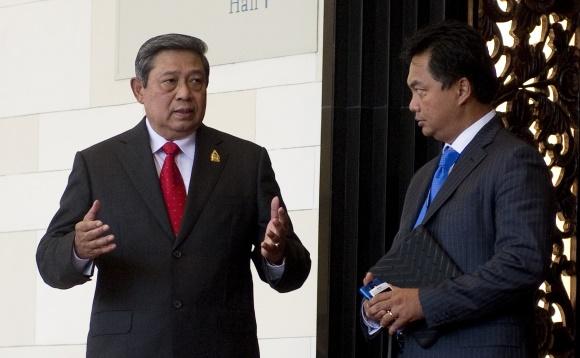
In any case, it is important for the international community to respect and honor the outcome, because it represents the wishes of the Indonesian people.
What do you think are the main challenges and opportunities for Indonesian foreign policy during the coming years? In my view, first and foremost is the challenge of how to make our international engagement beneficial to the needs of our people. There is an explosion of wealth and opportunities around the world, and our foreign policy machinery needs to make more deals and capture more trade, capital, education, technology and tourists for our people. I still do not understand why this amazing archipelago cannot yet attract 10 million foreign tourists while some of our neighbors have exceeded 20 million tourists. Indonesian restaurants are still so few internationally, compared to Chinese, Mexican, Japanese, Thai or even Malaysian restaurants. The number of Indonesian students studying abroad is also much smaller compared to Chinese, Indian and South Korean students. And I would especially like to see Indonesia become a major trading nation – for some reason, our trade with most of our partners is still well below its potential. So I think the key challenge is: how can Indonesia become more opportunity driven on the global stage?
Internally, we have to persuade our people, who are accustomed to believing that the world is out to exploit us, to think the opposite: that Indonesia can now exploit the world. We need to push back against anti-foreign sentiment, xenophobia and a siege mentality, which have led to so many lost opportunities. We need to convince our people that if we show some confidence, then we can compete and actually win. I have visited some 40 cities across Indonesia in recent months, and I found that a good portion of our people in the provinces feel they do not understand the world and feel disconnected from what us diplomats call the “global village.” The good news is that they are generally open minded. I have met many governors, district chiefs and mayors, and they are usually keen to connect with the outside world, but they do not know how.
Another challenge is to fit Indonesia into the evolving region. The Indo-Pacific is undergoing seismic changes. The architecture is getting better but all the moving parts are still not coherent: ASEAN, APEC, ARF, EAS, SCO and others. Major-power relations are very dynamic now, and there is a concern about a “cold fever” among them – I still do not want to call it a “new Cold War.” US-China relations are still engaged in an unstable mix of strategic rivalry and cooperation. Historic disputes that had been stable for years are suddenly hot again, including in the South China Sea. Emerging powers want a proper place at the table. Military modernization is growing in a region where strategic trust is relatively low. And we have yet to see how the conflict in Syria will affect us in the future, in the same way the conflict in Afghanistan produced transnational war veterans who caused security challenges back in Indonesia.
So you can see how the next president must navigate Indonesia through a very challenging and uncertain landscape. He needs to have a global view and strategic mindset; he should use our diplomatic assets intelligently; he ought to smartly engage the major powers; and he must keep Indonesia relevant in the order of things to come.







 resized.png)
